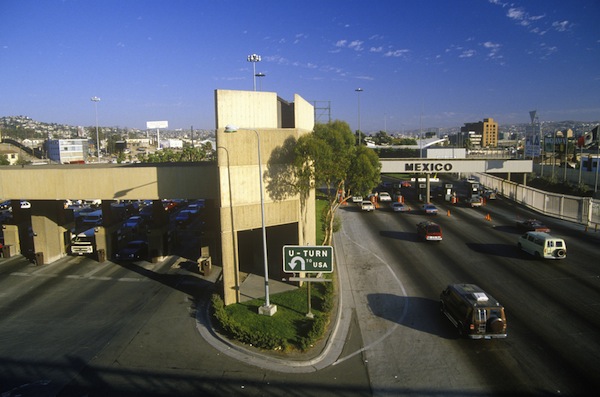Bipartisan Agreement on Border Security Needed for Immigration Reform

 spirit of america / Shutterstock.com
spirit of america / Shutterstock.com
Last week, President Obama took to Spanish-language airwaves to reinforce both his commitment to immigration reform and enforcement. Simultaneously, the now famous “Gang of Eight” in the U.S. Senate released their own “Bipartisan Framework for Comprehensive Immigration Reform.”
The “Four basic pillars” laid out by the senators include making a path to citizenship “contingent” on border security (which is not defined), connecting legal migration to economic needs, improving employer verification systems, and improvements to future migration systems. Senate Republicans quickly sent Sen. Marco Rubio (R-FL) on the media circuit to push what will surely be the toughest part of the proposed legislation to find agreement and passage: border security. Tweet it: Tweet
A recent Washington Post story questions whether net zero migration is a result of the $12 billion spent on border enforcement through personnel, as well as on 651 miles of fencing, 300 camera towers, 9 drones, or whether it was a natural result of the economic recession. Tweet stat: Tweet
Yet, despite this historic achievement, no further details were laid out on what additional “border security” means. This leaves many questioning if a path to citizenship is really in the cards for Republicans in Congress or "Blue Dog Democrats." In fact, the most awkward wording in the five page framework is to create a “tough, but fair path to citizenship.”
In what may have been a foreshadowing of what is to come, President Obama nominally appeased immigrant rights activists last year with the executive order, Deferred Action for Childhood Arrivals (DACA), granting temporary legal status to potentially hundreds of thousands of immigrant under 30 who came to the U.S. before the age of 16. This came after a record setting first term for deportations that angered many immigration advocates.
While many saw it as a last minute appeal to Latino voters in his re-election bid, the president may have well signaled a commitment to immigration policy changes, while at the same time setting the bar just short of a path to citizenship for the estimated 10-11 million undocumented immigrants in the United States.
“We have to take advantage of the new programs and debates, but we are advocating for a legalization for all undocumented people with a humane, inclusive. and clear pathway to citizenship that will take no longer than five years,” said Los Angeles immigration activist Martha Melendrez.
Martha and hundreds of activists are hosting workshops and events to encourage undocumented youth to apply for the DACA program, not because they love the program, but rather they see it as a relief and a step towards organizing a continued fight for comprehensive immigration reform.
According to Martha, comprehensive immigration reform means “not having to return to our home countries, making sure the vast majority of immigrants qualify, and reform must, must lead to full citizenship.” For her, that means being able to work legally. It means becoming a legal resident, then a citizen, and eventually voting. Tweet quote: Tweet
Making a path to citizenship contingent on securing a historically porous border will require Democrats and Republicans to agree on what a "secure" border means. Similarly, enough votes will be needed to agree on what a "tough path" to citizenship is.
Yet, President Obama may have already signaled a compromise by providing temporary relief rather than status change with the DACA executive order. While the emerging battle over defining "tough” and “secure” may determine passage of any reform, the larger battle may be whether or not "comprehensive" reform must have a path to citizenship.



